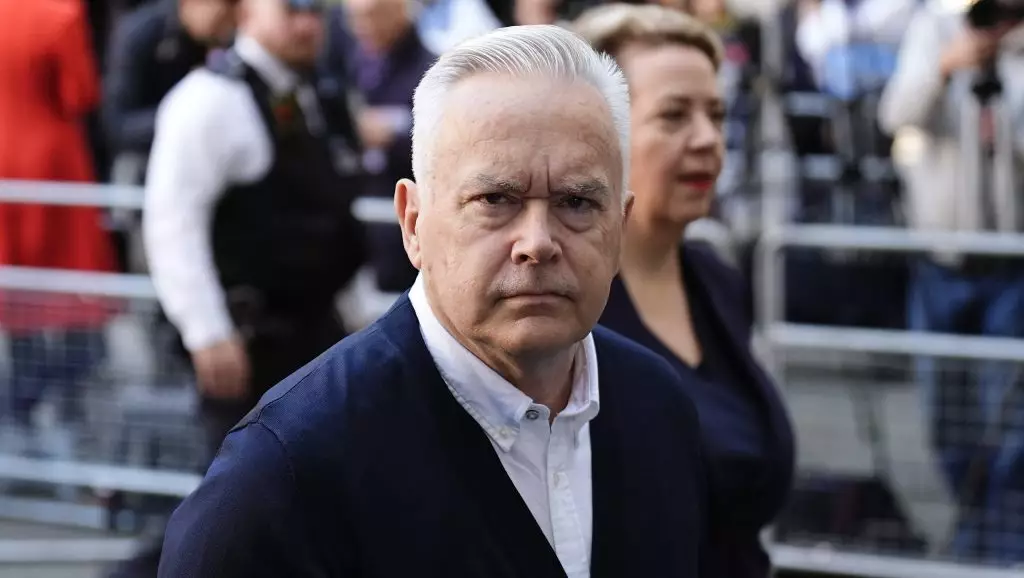The BBC, a cornerstone of British media, stands on the cusp of a significant cultural transformation. As the revelations surrounding former news anchor Huw Edwards continue to reverberate through the organization, the impending release of the workplace culture review by Change Associates signals a pivotal moment. Scheduled for disclosure during an all-staff town hall meeting, the insights and recommendations gleaned from this review may well dictate the future conduct and ethos of the nearly 21,000 employees within the corporation.
This review, especially in light of infamous scandals—from Edwards’ disturbing misconduct to the recent behaviors of other notable BBC figures like Jermaine Jenas and Gregg Wallace—does more than just analyze past failures; it confronts the organization’s timid relationship with accountability and its values. The timing of this investigation and the urgency surrounding its findings imply that the BBC’s leadership recognizes the imperative need for a cultural overhaul, one that could enhance transparency and reinforce ethical behavior.
The Promise of Change Associates
Change Associates, the consultancy behind the review, faces a formidable task. With Grahame Russell at the helm, their mandate stretches beyond mere identification of problems; they are charged with crafting actionable recommendations designed to rebuild trust and integrity within one of the world’s most venerable news institutions. Their focus areas are not just reactive but proactive, aiming to embed a deep understanding of the BBC’s core values, instill the importance of proper conduct, and ensure that everyone within the organization feels empowered to voice concerns without fear of repercussions.
How effective Change Associates’ insights will translate into tangible changes in everyday operations remains to be seen. Yet, the stakes have never been higher. The legacy of being the UK’s public broadcaster is interwoven with a duty to uphold integrity and the public trust. With the looming specter of serious allegations that have surfaced, such as those against Russell Brand, the BBC cannot afford to falter in following through on any proposals delivered by Change Associates.
Expectations Versus Reality
As excitement builds for the outcomes of the cultural review, skepticism also looms. The BBC has undertaken reviews before, most notably the 2013 Respect at Work Review launched after the Jimmy Savile scandal. Yet, have any of these reports brought about the sweeping changes that were promised? A wave of complaints revealed a toxic workplace culture rife with abuses of power, prompting the question of whether the BBC can truly effect meaningful change or if it will resort to mere lip service once again.
Indeed, many employees are likely to approach the outcomes of this review with a mix of hope and suspicion. While there is a genuine desire for reform, there is also the lingering doubt about the institution’s willingness to implement necessary changes with any urgency or sincerity. As BBC Chair Samir Shah emphasizes the importance of this moment, employees must be wary of history repeating itself. Can staff truly anticipate transformation, or is this simply another cycle of reviews that bring forth words without corresponding actions?
Building a Culture of Trust and Accountability
For the BBC to emerge stronger from this critical juncture, it must foster a culture that embraces accountability. This means not merely establishing structures to support reporting misconduct but also creating an environment where speaking out becomes the norm rather than the exception. Leadership must demonstrate steadfast commitment to these principles; only then will a culture of trust permeate the organization.
The foundation of this transformation hinges on the sincerity of implementation. The forthcoming recommendations must not be shelved away, but instead be woven into the fabric of daily operations. From training for management on appropriate behaviors to open dialogues about misconduct, every aspect of the organization must reflect this renewed commitment to ethical standards and respect.
In a world predisposed to skepticism about large institutions, the BBC must serve as a beacon of hope and integrity, reframing what it means to be a public broadcaster in the modern era. The release of the findings from Change Associates could mark either the beginning of a cultural renaissance or yet another opportunity squandered. The future of the BBC remains uncertain, but one thing is clear: the time for change has arrived, and the world is watching.
